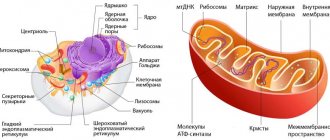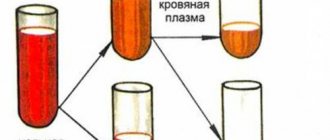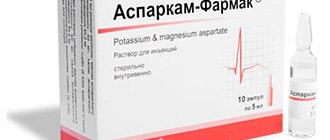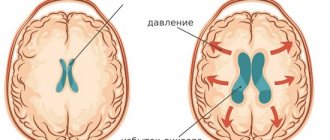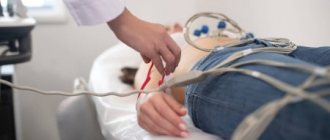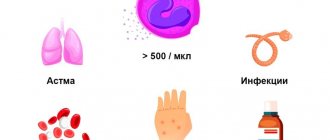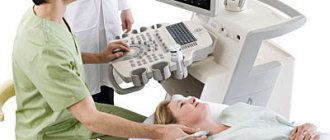FSH (follicle stimulating hormone)
The analysis is taken on the 3rd–8th or 19th–21st days of a woman’s menstrual cycle, for a man - on any day. Strictly on an empty stomach. In women, FSH stimulates the growth of follicles in the ovaries and the formation of estrogen. It promotes the growth of the endometrium in the uterus. Reaching a critical level of FSH in the middle of the cycle leads to ovulation.
In men, FSH is the main stimulator of the growth of the seminiferous tubules. FSH increases the concentration of testosterone in the blood, thereby ensuring sperm maturation. It happens that the hormone works at full strength, but there is no point where it is in demand. This happens when a man's testicles are small or have suffered from some kind of surgery or infection.
How to get examined?
All examinations are divided into planned and urgent. A routine examination is also carried out in the complete absence of symptoms, when screening is simply necessary. For example, due to iodine deficiency in many regions, all residents should have their thyroid-stimulating hormone tested periodically. If there are deviations from normal values, you should consult an endocrinologist. He will prescribe a list of further examinations to clarify the diagnosis.
If the patient has complaints, this is an indication for urgent examination. But not in every case, hormonal imbalance has external manifestations. Therefore, you should carefully monitor your health if the following symptoms appear:
- swelling,
- pigmentation,
- brittle nails,
- constant heat or cold,
- dry skin,
- hypo- or hypertension,
- obesity or malnutrition,
- myalgia,
- joint pain,
- constant fatigue
- short or tall,
- excessive sleepiness or insomnia,
- decreased performance.
The reason for consulting an endocrinologist is menstrual irregularities. Also, special attention should be paid to the control of sex hormones during menopause.
LH (luteinizing hormone)
It is given on the 3rd–8th or 19th–21st days of a woman’s menstrual cycle, for a man - on any day. Strictly on an empty stomach. This hormone “ripens” the follicle in a woman, ensuring the production of estrogen, ovulation, and the formation of the corpus luteum. In men, LH stimulates the formation of sex hormone binding globulin and increases the permeability of the seminiferous tubules to testosterone. This increases the concentration of testosterone in the blood, which promotes sperm maturation.
In women, the level of luteinizing hormone depends on the phase of the menstrual cycle. The peak concentration of LH occurs at ovulation, after which the level of the hormone drops and “stays” throughout the luteal phase at lower values than in the follicular phase. This is necessary for the functioning of the corpus luteum in the ovary. In women, the concentration of LH in the blood is maximum in the period from 12 to 24 hours before ovulation and is maintained throughout the day, reaching a concentration 10 times higher compared to the non-ovulatory period. During pregnancy, LH concentration decreases.
During the examination for infertility, it is important to track the ratio of LH and FSH. Normally, before the onset of menstruation it is 1, a year after the onset of menstruation - from 1 to 1.5, in the period from two years after the onset of menstruation and before menopause - from 1.5 to 2.
How to donate blood for hormones?
Murzaeva Irina Yurievna
Endocrinologist, Preventive medicine
December 13, 2011
It has become good practice to check your hormonal levels even before any health problems begin. Below I will talk about the rules for taking tests; to make the search easier, we will “divide” the hormonal levels into systems.
- Hormones of the thyroid gland, parathyroid glands. These are TSH, free and total T4, free and total T3, antibodies to TPO, antibodies to TG, antibodies to rTSH, some others - calcitonin, parathyroid hormone. They must be taken on an empty stomach (that is, “empty stomach”), or 4-5 hours after eating. Tablets (such as L-thyroxine, Euthyrox, Tyrosol, Mercazolil, etc.) are taken after the test. If you have been ill or are suffering from ARVI, ARI, it is better to get tested 4-5 weeks after recovery. These tests have no connection with the menstrual cycle.
- Sex hormones (for women).
 These are LH, FSH, estradiol, progesterone, prolactin, testosterone (free and total), DHA-S, 17-OH-progesterone, androstenedione, dehydrotestosterone. It is advisable to take the test on an empty stomach, for prolactin - for 2 days, refrain from intense physical activity, drinking alcohol, or sex. Take it after the temperature drops, in the morning 1-2 hours after waking up (preferably no later). Taking medications, not only hormonal ones, is also taken into account (therefore, present a list of medications you are taking to the doctor, and do not describe their approximate appearance with words - “well, these are white, small, in a blue box, in general, I don’t remember what they are called”) FSH, LH , ESTRADIOL, TESTOSTERONE, DHA-S, 17-OH-PROGESTERONE, ANDROSTENDEDIONE, PROLACTIN - given on 2-5 days from the start of menstrual bleeding (this is the 1st phase of the cycle) with a 28-day cycle, with a cycle of more than 28 days - 5-7 days , including after bleeding caused by progesterone, on days 2-3 with a cycle of 23-21 days. PROGESTERONE, sometimes PROLACTIN is taken on days 21-22 of a 28-day cycle (phase 2), or calculated on days 6-8 after ovulation (if an ovulation test was performed). DEHYDROTESTOSTERONE is given on any day of the cycle. For men, the test conditions are the same (hormones are slightly different)
These are LH, FSH, estradiol, progesterone, prolactin, testosterone (free and total), DHA-S, 17-OH-progesterone, androstenedione, dehydrotestosterone. It is advisable to take the test on an empty stomach, for prolactin - for 2 days, refrain from intense physical activity, drinking alcohol, or sex. Take it after the temperature drops, in the morning 1-2 hours after waking up (preferably no later). Taking medications, not only hormonal ones, is also taken into account (therefore, present a list of medications you are taking to the doctor, and do not describe their approximate appearance with words - “well, these are white, small, in a blue box, in general, I don’t remember what they are called”) FSH, LH , ESTRADIOL, TESTOSTERONE, DHA-S, 17-OH-PROGESTERONE, ANDROSTENDEDIONE, PROLACTIN - given on 2-5 days from the start of menstrual bleeding (this is the 1st phase of the cycle) with a 28-day cycle, with a cycle of more than 28 days - 5-7 days , including after bleeding caused by progesterone, on days 2-3 with a cycle of 23-21 days. PROGESTERONE, sometimes PROLACTIN is taken on days 21-22 of a 28-day cycle (phase 2), or calculated on days 6-8 after ovulation (if an ovulation test was performed). DEHYDROTESTOSTERONE is given on any day of the cycle. For men, the test conditions are the same (hormones are slightly different) - Adrenal hormones. (These are cortisol, renin, aldosterone, metanephrine, normetanephrine, adrenaline, norepinephrine, etc.). Take on an empty stomach, preferably between 8-9 am (daily peak secretion - more related to cortisol!). Before donating renin, aldosterone, metanephrines, etc., take some groups of medications for 2 weeks: Veroshpiron, and ACE (enalapril), B-blockers (Egilok), Aspirin and some others.
- Hormones of the pituitary gland (the main endocrine gland). These are: ACTH, growth hormone (growth hormone). I have already told you about FSH, LH, prolactin. ACTH is given as cortisol, on an empty stomach, 8-9 am, sometimes at 13.00 (and/or 20.00) - as prescribed by the doctor. STG (ego analogue of IGF1) on an empty stomach, at any time.
- The hormone insulin is given on an empty stomach, usually along with blood sugar. Sometimes together with a test for “glucose tolerance” (then 2 times - on an empty stomach and 2 hours after the “sugar syrup”).
- 24-hour urine testing (17-KS and 17-OX) is not currently used; the reliability of these tests is very low. But daily urine testing for cortisol is often done! To do this, urine is collected 24 hours from 8.00 one day to 8.00 another day (the entire volume of collected urine is recorded), it is mixed and 150-200 ml is brought to the laboratory, along with a record of the allocated volume. Some laboratories ask you to bring all your urine, you need to clarify this issue in advance! The same applies to 24-hour urine a) for calcium and phosphorus, b) metanephrines c) vanillylmandelic acid (for these you need to take a special preservative from the laboratory! to collect urine). When collecting daily urine, the following are excluded from the diet: beets, carrots, bananas, turnips, citrus fruits, and calcium supplements.
In endocrinology, hormonal tests are also used, but they are a separate topic.
Prolactin
To determine the level of this hormone, it is important to do an analysis in the 1st and 2nd phases of the menstrual cycle strictly on an empty stomach and only in the morning. Immediately before drawing blood, the patient should be at rest for about 30 minutes.
Prolactin is involved in ovulation and stimulates lactation after childbirth. Therefore, it can suppress the formation of FSH for “peaceful purposes” during pregnancy and for non-peaceful purposes in its absence. With increased or decreased levels of prolactin in the blood, the follicle may not develop, as a result of which the woman will not ovulate. The daily production of this hormone has a pulsating nature. During sleep, its level increases. After waking up, the concentration of prolactin decreases sharply, reaching a minimum in the late morning hours. After noon, the hormone level increases. During the menstrual cycle, prolactin levels are higher in the luteal phase than in the follicular phase.
Prolactin - on what day of the cycle should women take it?
Before going for analysis, you need to know on what day of the cycle to take prolactin - this is crucial for the accuracy of the result:
- if you are prescribed a test for luteotropic prolactin (the first phase of the cycle), then it must be taken 5-8 days before the start of menstruation;
- When studying follicular blood, blood is taken on days 3-5 of the cycle.
The first day of the cycle is the day when spotting appears.
After receiving the results of the study, you must consult a doctor for interpretation and diagnosis, if required. Endocrinologist Georgy Nikitich Romanov has specialized in hormonal disorders in the body for many years and helps people restore health or return to a normal life. He not only provides paid appointments at the medical center, but also conducts online consultations in any way convenient for the client (Skype, VKontakte, Instagram, Viber, etc.).
Estradiol
Blood is tested for this hormone throughout the entire menstrual cycle. Estradiol is produced by the maturing follicle, corpus luteum of the ovary, adrenal glands and even adipose tissue under the influence of FSH, LH and prolactin. In women, estradiol ensures the formation and regulation of menstrual function and the development of the egg. A woman ovulates 24-36 hours after a significant peak in estradiol. After ovulation, the hormone level decreases, and a second, smaller amplitude, rise occurs. Then there is a decline in the concentration of the hormone, which continues until the end of the luteal phase.
A necessary condition for the functioning of the hormone estradiol is its correct relationship to testosterone levels.
Main types of hormones
Hormones are divided into two groups: estrogenic (the so-called female hormones) and androgenic (male) hormones. The first group determines a woman’s ability to bear a child, and androgens form primary and secondary sexual characteristics.
There are also hormones that affect a woman’s emotional state, her ability to love, show tenderness and care. Thanks to these substances, natural instincts develop (for example, maternal instinct).
If the hormonal levels are normal, the woman feels good, but if there is a lack of female hormones, health problems arise.
Testosterone
This hormone can be tested in both men and women any day. Testosterone is needed by both spouses, but is a male sex hormone. In the female body, testosterone is produced by the ovaries and adrenal glands. Exceeding the normal concentration of testosterone in a woman can cause irregular ovulation and early miscarriage, and the maximum concentration of testosterone is determined in the luteal phase and during ovulation. A decrease in testosterone concentration in a man causes a decrease in sperm quality.
What to do after the examination?
If the problem is identified, you need to contact a specialist. If we are talking about gynecological pathology, you need to consult a gynecologist-endocrinologist. If problems arise in a man, then you need to consult an andrologist. Together with a specialist, the person will undergo additional research and begin appropriate therapy. Hormone therapy is a lengthy process and takes from three to six months. After therapy it is necessary to carry out monitoring.
If there are deviations from the norm in the tests, you should urgently consult an endocrinologist.
T4 (total thyroxine)
The concentration of T4 in the blood is higher than the concentration of T3. This hormone, by increasing the basal metabolic rate, increases heat production and oxygen consumption by all tissues of the body, with the exception of the tissues of the brain, spleen and testicles. Levels of the hormone in men and women normally remain relatively constant throughout life. However, in some areas, and Moscow is almost in first place, a decrease in the activity of the thyroid gland is often observed, which can lead to serious deviations in one’s own health and the health of the unborn child.
When is a hormonal test prescribed?
Hormones take part in almost all vital processes of the human body in one way or another. Starting from birth, they regulate a person’s health, his psycho-emotional state and life in general. Due to these biologically active substances, a person adapts to changes in the environment, enters into relationships, has children, in other words, exists normally. Hormonal imbalance can have the most serious consequences.
A blood test for hormones is not just prescribed. That is, during a routine examination, no one will do an examination of the endocrine system. Such diagnostics, as a rule, are carried out exclusively on the direction of a doctor who suspects disorders of the thyroid gland, diabetes mellitus or other endocrine disease. In addition, such an analysis is often prescribed for girls and women suffering from constant irregularities in the menstrual cycle, infertility, acne, recurrent miscarriages and obesity.
For pregnant women, this is one of the mandatory studies, since a lack of one or another hormone can lead to irreversible consequences.
 These are LH, FSH, estradiol, progesterone, prolactin, testosterone (free and total), DHA-S, 17-OH-progesterone, androstenedione, dehydrotestosterone. It is advisable to take the test on an empty stomach, for prolactin - for 2 days, refrain from intense physical activity, drinking alcohol, or sex. Take it after the temperature drops, in the morning 1-2 hours after waking up (preferably no later). Taking medications, not only hormonal ones, is also taken into account (therefore, present a list of medications you are taking to the doctor, and do not describe their approximate appearance with words - “well, these are white, small, in a blue box, in general, I don’t remember what they are called”) FSH, LH , ESTRADIOL, TESTOSTERONE, DHA-S, 17-OH-PROGESTERONE, ANDROSTENDEDIONE, PROLACTIN - given on 2-5 days from the start of menstrual bleeding (this is the 1st phase of the cycle) with a 28-day cycle, with a cycle of more than 28 days - 5-7 days , including after bleeding caused by progesterone, on days 2-3 with a cycle of 23-21 days. PROGESTERONE, sometimes PROLACTIN is taken on days 21-22 of a 28-day cycle (phase 2), or calculated on days 6-8 after ovulation (if an ovulation test was performed). DEHYDROTESTOSTERONE is given on any day of the cycle. For men, the test conditions are the same (hormones are slightly different)
These are LH, FSH, estradiol, progesterone, prolactin, testosterone (free and total), DHA-S, 17-OH-progesterone, androstenedione, dehydrotestosterone. It is advisable to take the test on an empty stomach, for prolactin - for 2 days, refrain from intense physical activity, drinking alcohol, or sex. Take it after the temperature drops, in the morning 1-2 hours after waking up (preferably no later). Taking medications, not only hormonal ones, is also taken into account (therefore, present a list of medications you are taking to the doctor, and do not describe their approximate appearance with words - “well, these are white, small, in a blue box, in general, I don’t remember what they are called”) FSH, LH , ESTRADIOL, TESTOSTERONE, DHA-S, 17-OH-PROGESTERONE, ANDROSTENDEDIONE, PROLACTIN - given on 2-5 days from the start of menstrual bleeding (this is the 1st phase of the cycle) with a 28-day cycle, with a cycle of more than 28 days - 5-7 days , including after bleeding caused by progesterone, on days 2-3 with a cycle of 23-21 days. PROGESTERONE, sometimes PROLACTIN is taken on days 21-22 of a 28-day cycle (phase 2), or calculated on days 6-8 after ovulation (if an ovulation test was performed). DEHYDROTESTOSTERONE is given on any day of the cycle. For men, the test conditions are the same (hormones are slightly different) 
